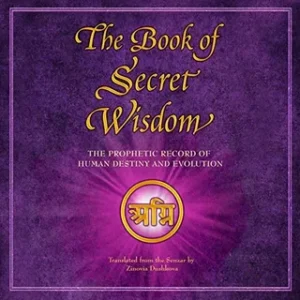How “The Republic” by Plato Still Influences Our View on Justice
Plato’s Vision of Justice in “The Republic”
Written around 380 BCE, “The Republic” by the ancient Greek philosopher Plato remains one of the most influential works in Western philosophy. At its heart, “The Republic” explores the nature of justice, the ideal city-state, and the role of individuals in a well-ordered society. In this text, Plato uses the character of Socrates to engage in a series of dialogues that examine the moral and ethical foundations of justice and how it relates to personal conduct, governance, and society as a whole.
While “The Republic” was written in a very different time, its teachings about justice, virtue, and governance continue to resonate in modern discussions about political philosophy, social justice, and the role of individuals in a democratic society.
The Concept of Justice in “The Republic”
At the core of “The Republic” is Plato’s exploration of what constitutes a just society and how justice can be understood on both a societal and individual level. Plato, through Socrates, argues that justice is a harmony that is achieved when each individual performs the role best suited to their nature and abilities. In other words, a just society is one in which everyone fulfills their proper function, whether as rulers, soldiers, or producers.
1. The Ideal City-State: Justice as Harmony
Plato’s vision of the ideal society is built around a strict division of labor. In “The Republic”, he divides society into three distinct classes: the rulers (philosopher-kings), the auxiliaries (soldiers), and the producers (farmers, craftsmen, and merchants). Each class has its own role to play, and justice is achieved when each class performs its function without interference.
For Plato, the rulers are the philosophers, those who possess wisdom and knowledge, and are therefore best suited to make decisions for the good of the whole society. The soldiers, who are courageous and disciplined, protect the city and defend it from external threats. Finally, the producers, who are skilled in various trades, ensure that the city has the resources it needs to survive and thrive.
Justice in Plato’s view, therefore, is not about equality in the sense we understand it today, but about each individual playing the role that is best suited to their nature. This vision emphasizes the importance of order and specialization, where everyone contributes to society in their own way.
2. Justice and the Soul: Internal Harmony
Plato also explores the idea of justice in the individual. In “The Republic”, he presents the human soul as divided into three parts: the rational part, the spirited part, and the appetitive part. Justice in the individual, Plato argues, occurs when each part of the soul performs its proper function, with reason guiding the spirited and appetitive parts.
This concept of justice within the soul has far-reaching implications for how we think about personal morality and virtue. Just as a well-ordered society is one where each class performs its proper role, a just individual is one whose rationality governs their emotions and desires. In this sense, Plato’s theory of justice emphasizes the importance of self-discipline, self-control, and reasoning as the basis for leading a virtuous life.
The Philosopher-King and the Role of Knowledge
One of the most striking aspects of “The Republic” is Plato’s concept of the philosopher-king, the ideal ruler who possesses both wisdom and virtue. Plato argues that only those who are truly knowledgeable—philosophers—should rule, because they understand the true nature of reality and can govern in the best interests of the people.
Plato’s idea of the philosopher-king challenges the notion that political power should be given to those with wealth or military prowess. For Plato, true rulers are those who have studied philosophy and are committed to the pursuit of knowledge and truth. In this way, Plato presents a radically different vision of leadership, where rulers are not driven by personal ambition or power but by a deep sense of duty to the greater good.
3. The Allegory of the Cave: The Search for Truth and Knowledge
In “The Republic”, one of the most famous metaphors Plato uses to explain his philosophy is the Allegory of the Cave. In this allegory, Plato describes prisoners who have been chained inside a dark cave all their lives, only able to see shadows on the wall. The shadows represent the distorted reality that the prisoners perceive as truth.
When one prisoner is freed and exposed to the world outside the cave, they see the sun, which represents the ultimate truth and knowledge. Plato uses this allegory to illustrate the philosopher’s journey from ignorance to knowledge, and the philosopher’s responsibility to bring this knowledge back to the people, just as the freed prisoner must return to the cave to help the others.
The Allegory of the Cave is a powerful reminder of the importance of education, self-awareness, and the pursuit of truth in both personal and societal contexts. It highlights the dangers of living in ignorance and the transformative power of knowledge.
Justice in Modern Society: The Relevance of Plato’s Ideas
Although “The Republic” was written in ancient Greece, its ideas about justice, society, and the role of knowledge continue to resonate today. The questions Plato raises about the nature of justice, the ideal state, and the role of the individual in society are still deeply relevant in modern political debates and social justice movements.
For example, Plato’s vision of the philosopher-king challenges modern notions of democracy, where leaders are often elected based on popularity or wealth rather than wisdom. His emphasis on knowledge and virtue in leadership resonates with contemporary discussions about the importance of ethical leadership and the dangers of populism and misinformation in politics.
Plato’s ideal city-state also raises important questions about the distribution of power and resources. While his model is based on a rigid division of labor, it raises broader concerns about inequality, privilege, and the role of the state in promoting the common good.
Conclusion: The Enduring Legacy of Plato’s “The Republic”
“The Republic” remains one of the most important texts in the history of philosophy. Its exploration of justice, society, and knowledge offers timeless lessons that continue to influence political theory, ethics, and discussions of moral conduct. While the text’s vision of the ideal society may seem distant from our modern democratic ideals, its fundamental questions about how we live together, how we pursue knowledge, and how we define justice are just as pressing today as they were in ancient Greece.
By engaging with Plato’s ideas, we gain not only a deeper understanding of the philosophical foundations of justice but also a framework for thinking critically about the societies we live in and the role each of us plays in shaping a just and virtuous world.









Post Comment